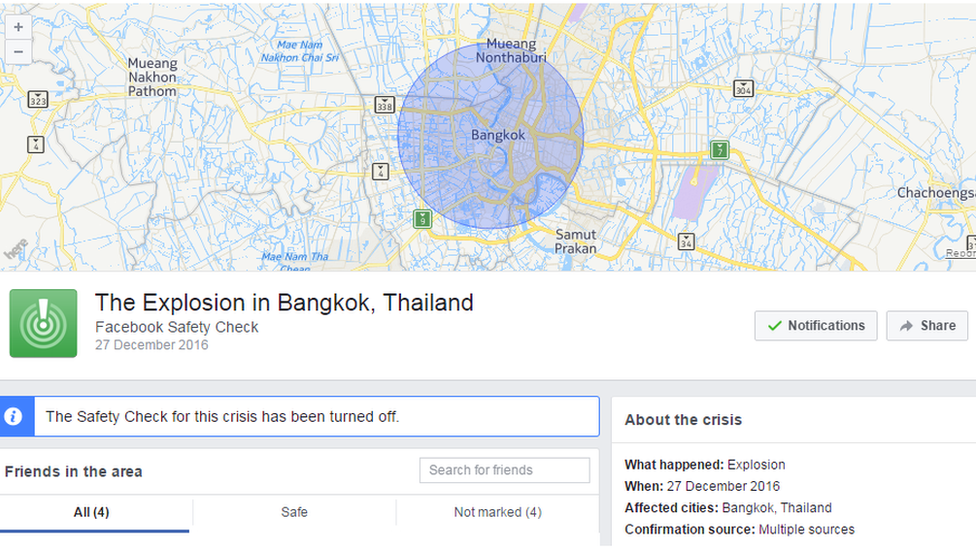Google SOS Alerts added to search results and maps
- Published
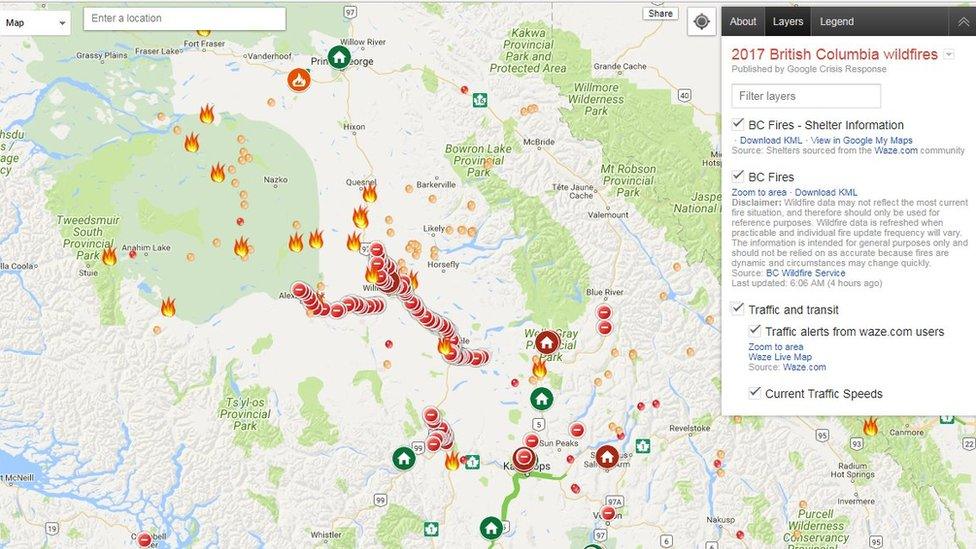
SOS Alerts has already been used to flag information about wildfires within Google Maps
Google has begun rounding up information about unfolding natural disasters, terrorism and other crises within its Search and Maps tools.
Visitors will be shown, external updates from authorities, news articles, emergency telephone numbers and other useful information in a single place.
The SOS Alerts facility can also be set to trigger mobile notifications to those nearby to affected locations.
However, Google is still seeking partners to improve the service.
The initiative builds on earlier emergency response efforts from the US firm, including its Person Finder and Crisis Map tools.
But this time, rather than requiring users to go to special sections of its site, SOS Alerts attempts to bring key information about incidents directly into two of Google's most used services.
Foreign phrases
When activated, the Maps tool reveals, among other things, areas that should be avoided, which roads have been closed and places users can seek refuge.
Data gathered from the firm's crowdsourced Waze mapping platform also makes it possible to see where traffic jams, accidents and other problems have been reported by the public.
The level of detail shown within the Search tool depends on whether the person carrying out the query is close to the incident.
If nearby, they are presented with links to official alerts, tweets from first responders, and useful short phrases in the local language.
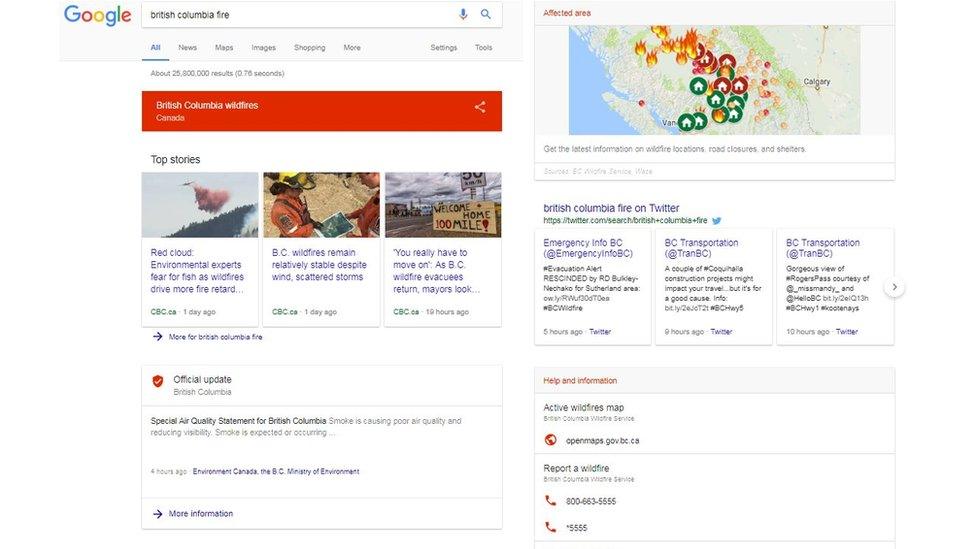
Google Search users will be shown different details depending on how close they are to the disaster
Those searching from afar are shown less detail unless they click for more information, but they may also be told how to make donations to charities involved in clean-up operations, if Google believes it to be appropriate.
"In situations of crisis, the need for information is crucial," Yossi Matias, the firm's vice-president of engineering, told the BBC.
"People need to know what's going on - anything that may be related to their safety, or any action they should be taking."
He added that Google had set up a dedicated team to decide which events warranted an SOS Alert, but declined to reveal how many people had been assigned to it.
Facebook - which offers a parallel service to let members in the vicinity of a disaster tell friends they are safe - has at times been criticised, external for activating it under "inappropriate" circumstances.
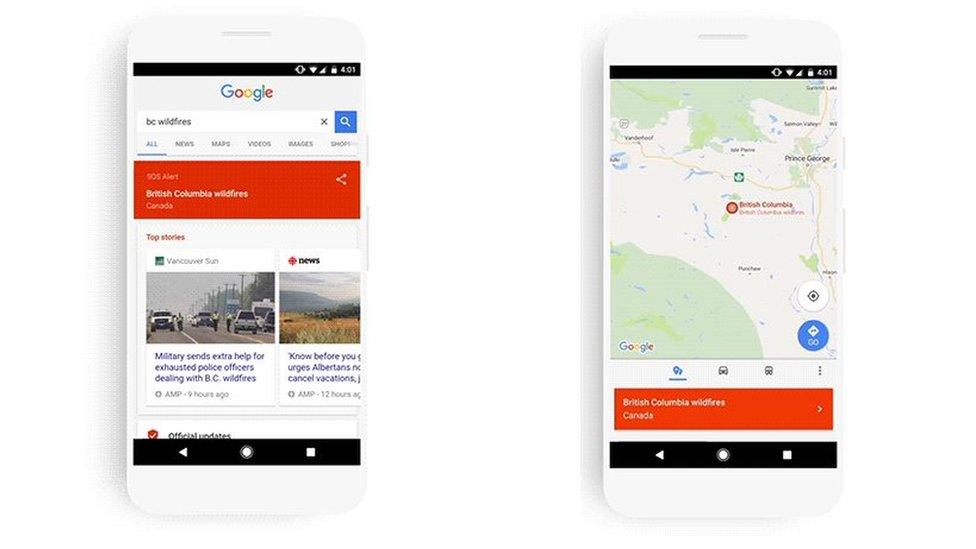
Android and iOS users can opt to be sent alerts if they are detected to be close to an event
Google has joined forces with government bodies, the Red Cross and various weather-forecasting organisations to help provide SOS Alerts in 12 countries, external. They include local organisations in the US, Japan, the Philippines, Australia and Canada.
But it has yet to secure partners in the UK and other European nations.
SOS Alerts will still cover events there, but will contain less information as a consequence until information-sharing arrangements are struck.
"In times of crisis, more and more people are turning to online sources of information to find out what to do," Omar Abou-Samra from the International Federation of Red Cross told the BBC.
"Designed to be shared in tandem with public alerts, the service provides localised lifesaving information that people can immediately act on to protect themselves and their families."
- Published6 June 2017
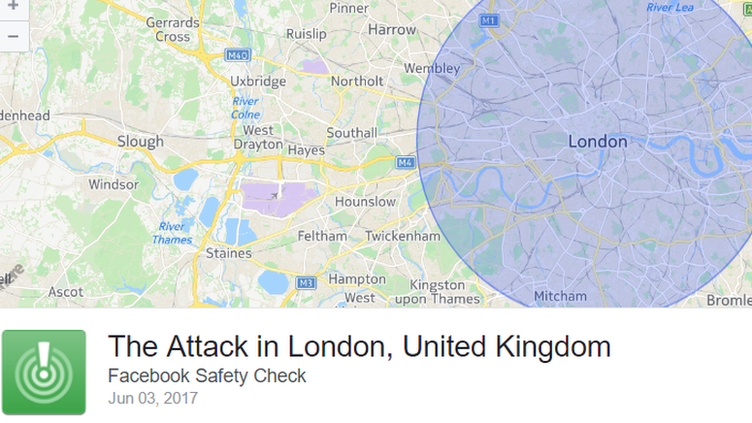
- Published21 July 2017
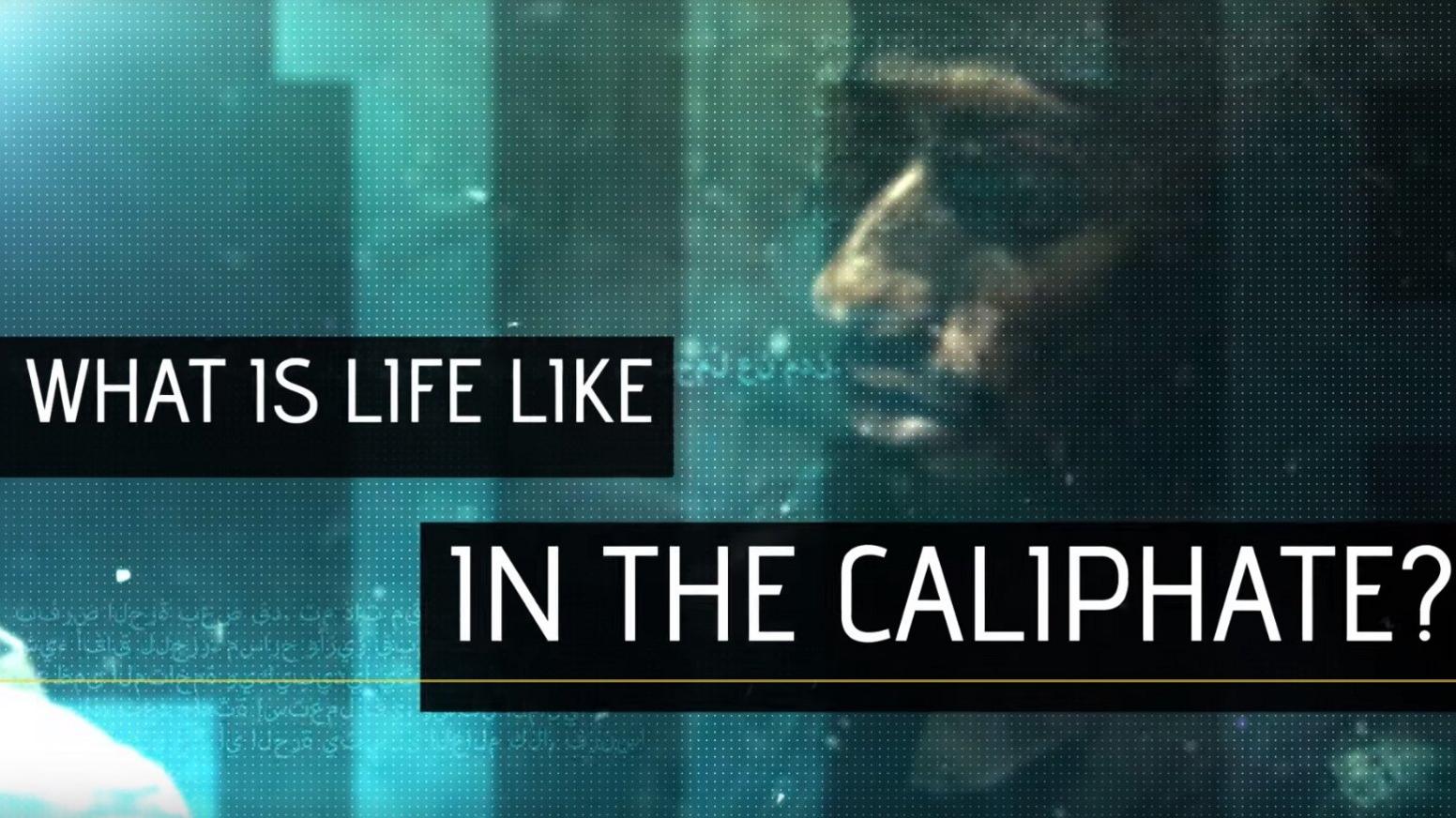
- Published28 December 2016
